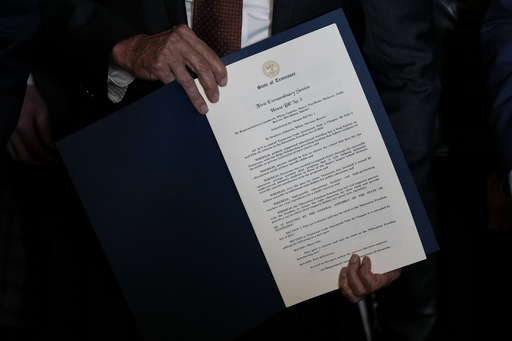NASHVILLE, Tenn. — On Wednesday, Governor Bill Lee enacted a new law that significantly broadens access to school vouchers across Tennessee, enabling families to allocate taxpayer funds toward private schooling irrespective of their income levels.
This $447 million initiative, which is being marketed as a “universal” program for all interested participants, does carry an important caveat: students residing in the country without legal documentation will be barred from applying.
Starting July 1, Tennessee’s Department of Education will be mandated to reject any school voucher application if the family cannot provide proof of the student’s legal residency in the United States. However, it remains uncertain how the state plans to verify this legal status, as the legislation does not outline any procedures for checking immigration status. A representative from the Department of Education has not provided any updates regarding inquiries on this issue.
Governor Lee emphasized that the new law does not alter the state’s existing duty to provide education for children. He stated to reporters after signing the bill that “this scholarship is only available to Tennessee citizens.”
This legislative move aligns with a broader trend among GOP-led states to adopt stricter immigration policies, reflective of the tough stance promoted during the Trump administration. Although much recent discourse has focused on large-scale deportation efforts, these states are also beginning to look into the intricacies of how immigration policies affect local education systems, especially as federal agencies are now permitted to operate in educational settings.
Under the new voucher program, Tennessee plans to allocate 20,000 education vouchers, valued at approximately $7,000 each, starting in the 2025-26 academic year. Of these, half are designated for students from lower-income backgrounds, those with disabilities, or others eligible under the new framework. The other half is available to any student eligible to attend public school.
In addition to restricting access based on immigration status, Tennessee Republicans have proposed a separate bill giving local school districts and charter schools the authority to refuse enrollment to children identified as “unlawfully present” in the country.
Proponents of this measure aim to challenge a landmark ruling from the U.S. Supreme Court from 1982, which established that states cannot withhold free public education based on a student’s immigration status.
State Representative William Lamberth, a Republican supporter of the initiative, stated, “Tennessee communities should not have to suffer or pay when the federal government fails to secure our borders. Our obligation is to ensure a high-quality education for legal residents first.”
Senator Bo Watson, another advocate for the bill, mentioned that though no local district had explicitly requested such authority to exclude undocumented students, he believes it remains a necessary course of action for local schools.
When questioned about this proposed legislation, Governor Lee indicated he had not reviewed the details and would refrain from commenting on whether he supports it.
This proposal, which was previously rejected by the Tennessee Legislature in 2022, faced opposition from the Tennessee Department of Education at that time. The department cautioned lawmakers that the legislation appeared to conflict with established Supreme Court rulings and federal laws prohibiting schools from inquiring about citizenship status.
During a previous session, an agency representative described that version of the bill as “legally fraught” and reaffirmed that providing public education to undocumented individuals is a settled legal matter. The agency has yet to take a position on this year’s proposal, which has not yet made substantial progress through the legislative process.
This website uses cookies so that we can provide you with the best user experience possible. Cookie information is stored in your browser and performs functions such as recognising you when you return to our website and helping our team to understand which sections of the website you find most interesting and useful.
